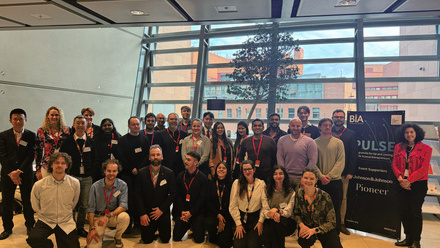UK public trust in engineering biology: insights from the latest DSIT survey

In this blog, Maddie Cass, Senior Policy and Public Affairs Executive at the BIA, shares our perspective on the recent Engineering biology public trust survey findings conducted by the Department for Science, Innovation and Technology (DSIT).
Engineering biology is an enabling technology that has the potential to be developed into products across a huge range of application areas, including health, food, chemicals, materials, biofuels, and more. Despite having the potential to transform a wide range of sectors, the public’s trust in these innovations has remained a question mark for many interested stakeholders. Public acceptance is crucial to technological adoption as consumers need to trust innovations in order to create market pull. DSIT’s recent survey sheds light on the British public’s views on engineering biology, providing valuable insights to industry.
DSIT’s survey is a welcome step forward in developing an informed view of public attitudes towards engineering biology. Up until now, there has been a paucity of data on the UK public’s attitudes. For example, the 2024 reports by Sciencewise into public perceptions of health and food engineering biology were largely based on existing international studies.
Key findings
As reported in last week’s blog from Izzy Webb, Deputy Director for Technology Strategy and Security at DSIT, 76% of the public are optimistic that engineering biology can be used to solve societal challenges. The public’s view of engineering biology depends on its application, but in general there is a widely held belief that the discipline will have a positive impact on science overall over the next ten years. Interestingly, 54% of people think that engineering biology already delivers ‘products that benefit me’, demonstrating that the public recognise the value engineering biology-derived products are delivering.
Consumer priorities
Across all the application areas of engineering biology, respondents’ top priority is that products are verified as safe for consumption and use, highlighting the importance of robust regulations and standards to foster trust and consumer acceptance. 92% of those surveyed agreed that it is important that engineering biology is properly regulated.
Other key priorities for consumers include that products should be of high quality, low price and be environmentally sustainable. There was also strong agreement (72%) that transparency is important and that it should be made clear which products have been developed through engineering biology. 76% of those surveyed wanted more information on engineering biology in order to make better informed decisions about engineering biology products.
Industry reception
The report has been well-received by industry, offering reassurance and encouragement that there will be demand for engineering biology products coming down the development pipeline. The report does not provide the text it used to define engineering biology. Given that 61% of those surveyed had never heard of engineering biology before, it would be valuable to see how the survey explained the term to gain a better understanding not only the British public’s views of engineering biology, but also its level of understanding.
Overall, these results provide a springboard for future public engagement work, which DSIT plan to build on. Surveys of these kind are invaluable to the BIA as the policy team continues to develop its policy and regulatory work to support engineering biology companies. A repetition of the survey in future would be well-received, to see how public attitudes shift over time, and as engineering biology derived products continue to hit the market.






